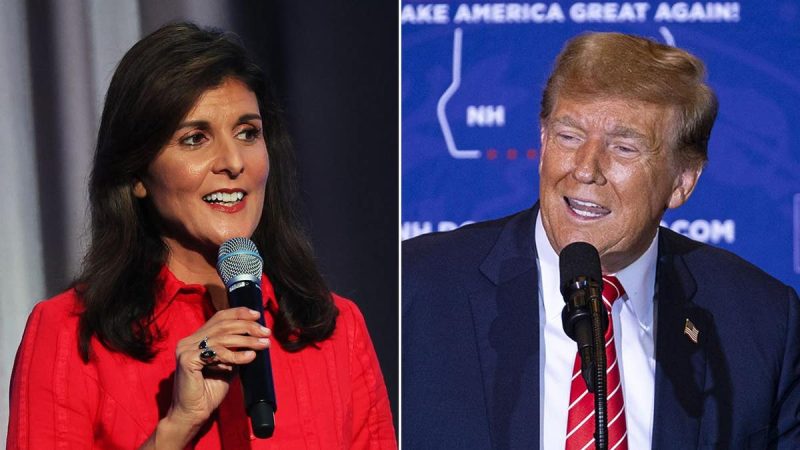
Republican delegates in three states will be awarded to candidates on Saturday as Idaho and Missouri hold caucuses and Michigan allocates additional delegates in its Republican state convention days after it held its primary.
In Idaho, Republicans will caucus across the state on Saturday and only registered Republicans are allowed to take part.
Former President Donald Trump and Nikki Haley, his former U.N. ambassador, will compete for the state’s 32 Republican delegates. Haley is looking to score her first victory against Trump, but, given the pattern of voting in previous contests this year, she is unlikely to find it in Idaho.
The Republican caucuses will largely resemble the first-in-the-nation caucuses that Iowa Republican staged in January. Voters across the state will meet in their designated caucus sites and will hear short pitches on behalf of the various candidates. Then they will vote by secret ballot, with the results tabulated at each caucus site. Vote totals from all caucus sites will be added up and the results used to determine how many delegates each candidate has won.
Trump easily carried Idaho in the 2020 election beating President Biden by a margin of 30 points.
Delegates will also be awarded in Missouri on Saturday where Republicans will be holding a caucus that will start the process of awarding 51 of Missouri’s 54 Republican delegates to the Republican National Convention this summer.
Fifty-one of the delegates are awarded to candidates through a monthslong process that begins Saturday. Eleven delegates will be awarded to candidates at the statewide level, while five delegates will be awarded from each of Missouri’s eight congressional districts. That’s a combined total of 51 delegates at stake in what’s known as a ‘caucus-convention’ system. The remaining three delegates are the state party chairman and Missouri’s Republican national committeeman and committeewoman, who may support any candidate they wish regardless of caucus results.
Caucus-goers will express their preferences for president, and those results ultimately are used to determine the number of delegates awarded to candidates both at the statewide and congressional district level. At both the statewide and district levels, all delegates at stake are awarded to the candidate who receives majority support. If no candidate receives a majority, delegates are allocated proportionally among candidates who received at least 15% of support, with some minor exceptions.
Polling conducted earlier this year showed that Trump is likely to cruise to victory in Missouri.
Trump was victorious in the Michigan primary earlier this week beating Haley by 41 points and earning 12 delegates compared to Haley’s 4.
However, the Michigan GOP will hold a nominating convention on Saturday to allocate the remaining 39 of the state’s 55 presidential delegates in Grand Rapids.
Trump has scored convincing victories in each of the primary battles thus far and his team has suggested that he will wrap up the GOP nomination by the end of the month but Haley has pledged that she is staying in the race until at least March 5, Super Tuesday, where over 800 delegates will be at stake.
The Associated Press contributed to this report






